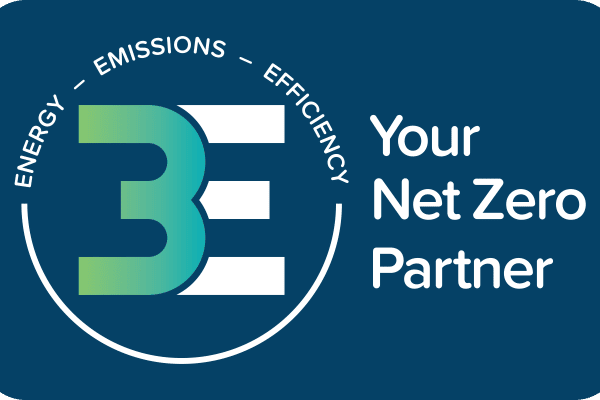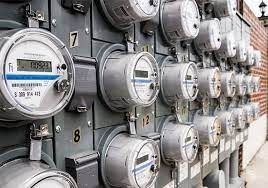An EPC ESCO is a Government approved Energy Services Company (ESCO) providing Energy Performance Contracting / EPC services to various Government organisations. They are generally referred to as ESCOs or EPC ESCOs but are also known as Energy Saving Companies, Energy Performance Contractors or EPC firms.
What is a ‘Leading EPC ESCO?’
Leading EPC ESCOs are those energy services companies that have an established presence in the energy efficiency and energy services market as a credible Energy Performance Contractor, with a strong track record of success implementing Energy Performance Contracting projects (EPCs). Leading EPC ESCOs are generally end-to-end energy service providers including: energy advisory, energy efficiency and energy management solutions to a Tier-1 client profile. You will find that leading EPC ESCOs are typically members of peak industry bodies (i.e. Energy Efficiency Council) and other notable organisations advocating sustainability and energy efficiency and have a large team of engineers qualified with CEM, CEEL , CES and CMVP credentials.
Who are the leading Energy Performance Contractor / EPC ESCOs in Australia?
There are many companies and firms operating in the energy services sector in Australia, however the ESCOs considered as leaders in the field are government approved ESCOs which have obtained pre-qualified status on a number of Government EPC panels including: New South Wales, Victoria, South Australia etc. and successfully implemented a number of large scale EPCs for Local Government and State Government organisations.
The energy services sector, much like any other mature industry, has a handful of ‘big players’ and a multitude of smaller competitors and challenger companies.
Some of the leading EPC ESCOs in Australia include:
- Ecosave
- Schneider Electric
- Siemens
- Honeywell
- Veolia
The above list is derived from the competitiveness among these Energy Performance Contractor ESCOs in the EPC market in terms of how frequently they are shortlisted and subsequently selected as preferred Energy Performance Contractors to government organisations in various EPC tenders. While some of the above listed ESCOs are large multi-national conglomerates, their EPC ESCO divisions in Australia is a small and insignificant part of their entire business. By contrast, specialist Energy Performance Contractor ESCOs such as Ecosave who are smaller privately owned companies compared to multi-nationals, but are many times larger than their competitors in terms of dedicated resources to designing and implementing EPC projects. As an example, Ecosave has over two-dozen staff in Australia alone dedicated to energy advisory, energy efficiency and energy management services constituting EPC projects, while in the U.S., Ecosave Inc. has more than 40 staff specialising in energy services.
How to decide which EPC ESCO to work with?
There are at least seven tell-tale signs of a Top EPC ESCO:
- Product independent – is the EPC ESCO you’re considering biased when it comes to the products and equipment upgrades they recommend? Hint: if they are an Original Equipment Manufacturer (OEM), or have exclusive selling and distribution rights of equipment and technology, then chances are, they’re biased. Product biased ESCOs tend to push their product line with minimal thought given to whether or not it’s the best solution for your organisation. A product independent ESCO is not concerned with selling products, but focused entirely on providing quality solutions that deliver on performance-guarantees in the EPC.
- Track record – evaluate their track record with local government and state government; consider the scale of EPC projects they’ve implemented as well as how many years they been in the EPC market and the energy efficiency sector for. Beyond the EPC space, how active are they in the private sector? What kind of clients have they worked with in the past?
- Expertise – Does the ESCO have a team of suitably qualified energy efficiency experts, electrical engineers, mechanical engineers with industry experience and have obtained industry certifications including: certified energy efficiency leader (CEEL), certified energy efficiency specialist (CEES), certified energy manager (CEM) and certified measurement and verification professional (CMVP)?
- Holistic approach – are they thinking outside the box when it comes to energy conservation measures ? Do they take a ‘whole of building’ multi-technology approach? Or do they only focus solely on lighting and Solar PV? Furthermore, do they provide an end-to-end solution including: energy advisory, energy efficiency upgrades and energy management services?
- Quality – does the EPC ESCO have a commitment to quality, such as an internationally recognised Quality Management System (BSI recognised ISO9001 standard or equivalent)?
- Specialisation – consider the ESCOs breadth of services and degree of specialisation of providing energy advisory, energy efficiency and energy management type services in your industry. ESCOs with an ‘inch wide, mile high’ focus (i.e. niche energy services provider) are typically more reliable and effective as EPC contractors given their specialisation, resourcing and intellectual property.
- Fixed-price delivery and Guaranteed Savings – is the EPC ESCO you’re considering prepared to offer fixed-fee services and guarantee energy savings for non-EPC tenders or projects? In other words, is there any evidence of the ESCO providing EPC like performance guarantees outside of the traditional EPC tendering model? This is a good sign they they are a Top ESCO as they would typically have sufficient resources, expertise and industry experience to assume those technical and financial risks.
What does an EPC ESCO do?
An EPC ESCO’s main job is managing technical risk—the EPC shifts that risk from your organisation (where it would normally lie in a traditional tendering approach) to the EPC ESCO. (how an energy efficiency ESCO can help your organisation)
The EPC ESCO assumes the risk that:
- the project will perform as designed;
- the project will remain within budget regardless of technical difficulties; and
- the equipment will not be maintained or operate properly after installation.
The Energy Performance Contracting (EPC) Process
- Energy Performance Contracting (EPC) is a way of implementing energy efficiency projects for plant and equipment upgrades across various facilities and buildings. An EPC is an innovative form of performance-based contracting, developed to overcome the major barriers to delivering cost-effective energy efficiency with minimal risk and cost to organisations.
- The EPC methodology differs from traditional contracting, which is invariably price-driven. Performance contracting is results-driven, ensuring quality of performance, energy cost savings and emissions reduction.
- A State Government, Agency or Local Government Council would typically tender the energy efficiency opportunity to a number of pre-qualified EPC ESCOs with an Expression of Interest (EOI). The EOI is either published on a public tender portal, or distributed exclusively to its panel of pre-qualified ESCOs.
- EPC ESCOs would typically respond to the EOI with a document containing company information and describing its service offering along with credibility and capability statements.
- The client organisation reviews the EOIs submitted by all participating EPC ESCOs and subsequently shortlists a handful of preferred EPC ESCOs – usually between 3 to 5. The shortlisted ESCOs are then notified and invited to respond to a Request for Proposal (RFP) specifying particular areas requiring energy efficiency upgrades or energy services.
- The participating ESCOs each submits a formal Bid response to the RFP according to certain technical and performance evaluation criteria set by the client organisation. The government agency reviews and selects an EPC ESCO that represents a low risk and most effective implementation partner. Typically only one EPC ESCO is selected to conduct the Detailed Facility Study (DFS). The EPC ESCOs responding to the DFS calculate the costs for energy efficiency upgrades and all predicted savings.
- EPCs have been successfully adopted in Australia and largely driven by the two larger States, New South Wales and Victorian State Governments.
EPC Case Studies
- City of Sydney
- Wagga Wagga City Council
- Waverley Council
- NSW Department of Education
- Queensland Health
- State Water Corporation
- City of Yarra
Related content:
- Ecosave works the City of Yarra in Energy Performance Contract
- Best Practice Energy Savings Projects for Councils
- What is an ESCO?
- Advantages of Energy Efficiency Upgrades in Commercial Buildings
- Energy Conservation Measures
- 7 reasons why energy conservation is a smart business strategy
- Energy Savings Opportunity Assessments
- How Energy Savings Projects can benefit an organisation
- Ecosave – Energy Services and Solutions
- Ecosave – Energy Advisory Solutions
- Ecosave – Energy Efficiency Solutions
- Ecosave – Energy Management Solutions
- Latest News & Insights
- Useful links





